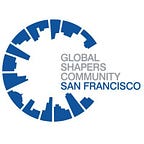The Future of Diversity and Inclusion
From May to November 2016, I hosted a four-part dinner series for 50 leaders in diversity and inclusion in the Bay Area. We discussed the future of diversity and inclusion and how we can collaborate across sectors to accelerate each other’s work. As we set our intentions for 2017, I wanted to share the story of how this dinner series came to be, and what leaders in this space recommend.
“What matters to you?”
My oldest friend sits across from me. His notebook is open. It’s the beginning of 2016 and we’re setting intentions. We feel the newness of the year in our bones. The air smells fresher, the sunlight brighter. We want to make the most of the clean slate, before the year gets ahead of us.
The hardest confrontation is the one we have with ourselves. Once we realize what we truly matters to us, we cannot excuse ourselves from acting on it.
“I care about equal access to economic opportunity and cultural production. I care about diversity and inclusion in my local community.”
My friend nods. He asks me another question.
“Why is this important to you?”
I was born and raised in a small town in the American South. I rarely met anyone that looked like me or my family. When I was 4 years old, I stood outside my preschool classroom and told my mother never to speak to me in Chinese again.
It was painful to be different. I wanted to tear off my skin and find white underneath.
I spent the next twelve years of my life rejecting my identity.
It wasn’t until university that I began to look in the mirror with acceptance, understanding, and ultimately, pride. I gained the vocabulary to talk about race — words like systematic oppression, orientalism, intersectionality. But more than an education, it was community that made the difference. It was friends who pushed me to ask myself what mattered, and why.
For most of my life issues of inclusion and representation have been painful. 2016 was about turning that pain into strength — not just for myself, but for others.
“How are you going to act on this?”
The Allies Dinner Series
From May — November 2016, I hosted a four-part dinner series for 50 leaders in diversity and inclusion in the Bay Area. Each dinner was curated: (1) Entrepreneurs; (2) Technologists; (3) Legal and Policymakers; (4) Media & Storytellers. Here are some of the organizations that came to the table:
The Dinner Learnings
Over 4 dinners and 224 sticky notes, the leaders of these organizations discussed how to scale diversity and inclusion work over the next five years and identified where collaboration can be most additive.
This is what they recommend:
“How did it work?”
The diversity and inclusion sector is young. There’s fragmentation and resourcing challenges, but also optimal timing to build and collaborate as an ecosystem. As I designed the dinner series, I thought a lot about how to create ecosystem dynamics that would ultimately lift all organizations in this space.
From this hypothesis, I formulated my goals for the dinner series: (1) build authentic connections and community and (2) identify opportunities for partnership or collaboration. Each dinner began with three principles:
(1) Trust all dinner attendees; (2) Share learnings out but keep names in; (3) Respect individual and collaborative space.
I designed the dinner series as a “pop-up”, meaning it had a firm beginning and end date. This was a forcing function to think about how the concept could live beyond me from the beginning, which was fitting because I didn’t want this to be about me. I knew for any change to come from this initiative, I had to rigorously document the learnings and process.
Post dinner series, I’m more confident than ever that each one of us can build inclusive spaces, anywhere. To help with this, I made this short guide to building “pop-up” inclusive spaces.
Run with it. Build with it.
Onward
The more inclusive spaces we build, the more collaboration across backgrounds, sectors, and borders becomes the default way we work and interact. To you, reader, may 2017 be the year you work on what matters. May your confidence remain steadfast, and if ever it wavers, may you remember that you are supported by a community of friends and strangers alike.
Thank you to all the guests of the Allies Dinner Series. A special thank you to Giovanna Mingarelli for co-hosting and to the early believers (Mari, Charles, Brian, Javier, Amy, Emi, Yvonne and the San Francisco Global Shapers Community). And to David for being my oldest friend.
Originally published at blog.techinclusion.co by @karenmok on January 4, 2017.
